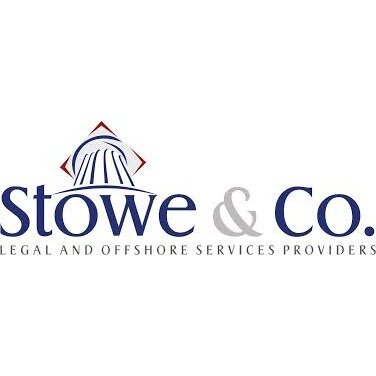Best Mining Law Lawyers in Roseau
Share your needs with us, get contacted by law firms.
Free. Takes 2 min.
List of the best lawyers in Roseau, Dominica
About Mining Law in Roseau, Dominica
Mining Law in Roseau, Dominica refers to the body of laws and regulations that govern the exploration, extraction, management, and sale of mineral resources within the country’s jurisdiction. In Dominica, the legal framework covers minerals such as sand, gravel, stone, clay, and other natural resources found on land or within territorial waters. The government holds significant control and ownership over mineral resources and has established procedures for licensing, environmental protection, and community impact. Due to Dominica’s environmental priorities and small landmass, particular attention is given to sustainable practices and minimizing ecological disturbance.
Why You May Need a Lawyer
There are several situations in which consulting a lawyer experienced in Mining Law in Roseau, Dominica may be necessary. If you are considering mining operations such as extracting aggregates for construction or exploring land for potential mineral resources, a lawyer can help navigate permit requirements and ensure compliance with regulations. Legal assistance is also vital if you are negotiating agreements, facing disputes regarding land rights, or have concerns over environmental obligations and community consultations. Furthermore, should any enforcement action or penalties be pursued by government authorities, a lawyer will be essential in protecting your interests.
Local Laws Overview
Mining activities and mineral resource management in Roseau, Dominica, are mainly governed by the Minerals Act and secondary regulations. These laws determine how mineral rights are acquired, outline permit and licensing conditions, and set rules for environmental management and community engagement. The government retains control over all minerals and issues licenses for exploration and extraction. Comprehensive environmental impact assessments may be mandatory before large-scale mining begins. Holders of mining permits must adhere to strict guidelines on restoration, land use, and reporting, while unauthorized mining carries severe penalties. Small-scale and artisanal mining may also have specific regulations and support frameworks.
Frequently Asked Questions
What types of minerals can be mined in Dominica?
Common minerals in Dominica include sand, gravel, stone, clay, and certain aggregates. Exploration for these minerals must comply with local regulations, and certain resources may have additional restrictions due to environmental concerns.
Who owns mineral resources in Dominica?
All mineral resources are owned by the state. Individuals or companies must obtain legal authorization or leases from the government to explore or extract minerals.
How do I apply for a mining license or permit?
Applications for mining and exploration licenses must be made to the relevant governmental ministry, typically the Ministry of the Environment, Rural Modernisation, and Kalinago Upliftment. The process involves submitting detailed project proposals, environmental assessments, and proof of legal rights to the land.
Are environmental permits required for mining?
Yes. Most mining activities require an environmental impact assessment and permits that confirm compliance with sustainability and pollution control standards. The government closely monitors outcomes through inspections and mandatory reporting.
Can mining activities occur on private land?
Permission from both the landowner and the government is required before mining can start on private property. Even with landowner consent, government licensing is mandatory.
What happens if I mine without a license?
Mining without proper authorization is illegal and subject to heavy penalties, including fines, confiscation of equipment, and potential criminal prosecution.
Is there a difference between large-scale and small-scale mining laws?
Yes. Large-scale mining may face stricter environmental and community requirements, while small-scale or artisanal mining could have adapted, simplified procedures, but still requires compliance with safety and restoration standards.
What should be included in a mining agreement?
A mining agreement should cover terms of operations, profit-sharing, environmental safeguards, restoration obligations, dispute resolution, and community benefits if required. Legal review is strongly advised before finalizing any agreements.
Can foreigners own mining rights in Dominica?
Foreign entities may obtain mining permits, but typically must meet additional requirements and comply with investment laws. Government approval is always required.
Are there community consultation requirements?
For many projects, especially those with significant local impacts, community consultations and benefit agreements may be required by law or as a condition for granting permits.
Additional Resources
People seeking legal advice or regulatory guidance on Mining Law in Dominica may contact the following entities:
- Ministry of the Environment, Rural Modernisation, and Kalinago Upliftment - Responsible for licensing and environmental oversight
- Physical Planning Division - Reviews land use and environmental impact assessments
- Dominica Geological Surveys Unit - Provides information about mineral resources
- Dominica Bar Association - Helps locate qualified mining law practitioners
- Environmental Coordinating Unit - Assists with environmental compliance and assessments
Next Steps
If you require legal advice or representation in Mining Law matters in Roseau, Dominica, start by clearly outlining your objectives and gathering all relevant documentation such as land titles, maps, and previous correspondence with government agencies. Contact a local lawyer who specializes in Mining Law and arrange a consultation to discuss your situation in detail. It is advisable to act early in the planning process to avoid costly mistakes and regulatory breaches. Staying informed through government resources and ensuring transparency in your dealings can help navigate the complex legal landscape associated with mining activities in the region.
Lawzana helps you find the best lawyers and law firms in Roseau through a curated and pre-screened list of qualified legal professionals. Our platform offers rankings and detailed profiles of attorneys and law firms, allowing you to compare based on practice areas, including Mining Law, experience, and client feedback.
Each profile includes a description of the firm's areas of practice, client reviews, team members and partners, year of establishment, spoken languages, office locations, contact information, social media presence, and any published articles or resources. Most firms on our platform speak English and are experienced in both local and international legal matters.
Get a quote from top-rated law firms in Roseau, Dominica — quickly, securely, and without unnecessary hassle.
Disclaimer:
The information provided on this page is for general informational purposes only and does not constitute legal advice. While we strive to ensure the accuracy and relevance of the content, legal information may change over time, and interpretations of the law can vary. You should always consult with a qualified legal professional for advice specific to your situation.
We disclaim all liability for actions taken or not taken based on the content of this page. If you believe any information is incorrect or outdated, please contact us, and we will review and update it where appropriate.











